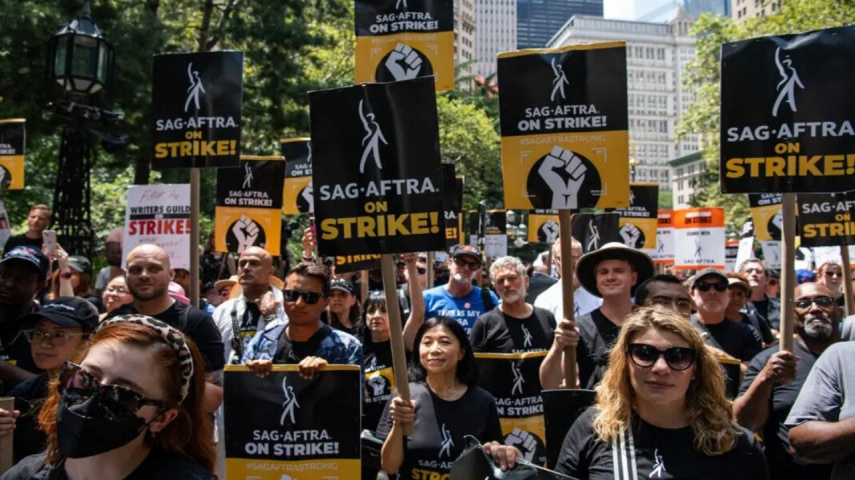Why Was the 75th Emmy Awards Delayed for Four Months?
The highly anticipated 75th Emmy Awards faced an unforeseen hurdle as the glitzy ceremony, usually held in September, was delayed by a significant four months.

-
The 75th Emmy Awards faced an extraordinary 4-month postponement due to Hollywood's labor strikes
-
Over 11,000 writers walked out in May, followed by tens of thousands of actors in July
The highly anticipated 75th Emmy Awards encountered an unexpected setback when the lavish presentation, which is typically held in September, was pushed back by four months. The entertainment sector was thrown into turmoil as a result of extensive labor strikes, which began in May with over 11,000 television and movie writers, followed by tens of thousands of performers joining the picket lines in July. Because of the simultaneous onslaught of labor disputes, a rare situation since 1960, Emmy organizers made the unusual decision to move the ceremony until January as per the New York Times.
Hollywood grapples with unprecedented labor woes
The root of the delay was the previous year's labor turmoil in Hollywood. The Writers Guild of America (WGA) and the Screen Actors Guild - American Federation of Television and Radio Artists (Sag-Aftra) banded together to protest alleged unfair working conditions and unequal pay distribution. This strike action effectively halted the industry for four months, generating a ripple effect that reached the heart of the Emmy Awards schedule.
The pinnacle of delays: A parallel walkout of writers and actors
In an unexpected turn of events, almost 11,000 writers went on strike in May, and the strike lasted until late September. Tens of thousands of actors went on strike at the same time in July, creating a one-of-a-kind situation of simultaneous actor and screenwriter walkouts—a phenomenon not seen since 1960. Because of the deadlock, Emmy organizers made the painful choice to postpone the event until January, giving the industry the time it needed to negotiate and resolve the complicated labor problems.

The effects of the four-month delay are seen in the nominations, with numerous series experiencing huge gaps in airtime. For example, Succession, a frontrunner with worldwide acclaim, was off the air for eight months, potentially affecting its exposure and buzz in the run-up to the postponed Emmy Awards. Another nominee, The Bear, got nominations for its first season, which premiered 19 months ago. The longer period between release and award consideration complicates the ceremony's dynamics.
Unaltered decision-making: Voting process amid uncertainty
Despite the uncertainty surrounding the event date, the Television Academy, which is in charge of organizing the Emmys, chose to keep the usual voting procedures in place. The 20,000-strong Academy membership voted by the normal deadline of August 28, determining the winners months in advance. This unwavering attitude guaranteed that the delays had no effect on the outcome, underlining the Academy's dedication to preserving the Emmy Awards' integrity in the face of extraordinary circumstances.
Lastly, the 75th Emmy Awards were delayed in an unprecedented manner due to the maze of labor issues that gripped Hollywood. Because of the simultaneous strikes by writers and actors, organizers were forced to reschedule the event until January. The impact of this delay ripples through the nominees, with shows experiencing dormant issues and potential upheavals in industry dynamics. The 75th Emmy Awards, when the industry gathers to honor the best in television, promise to be a momentous and unpredictable night, molded by the incredible circumstances that led to this unique scheduling oddity.
ALSO READ: 75th Primetime Emmy Award: Succession wins Emmy Award as Best Drama for the third time





 JOIN OUR WHATSAPP CHANNEL
JOIN OUR WHATSAPP CHANNEL


































































































